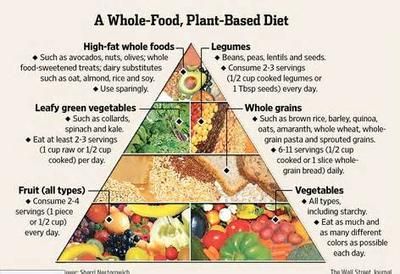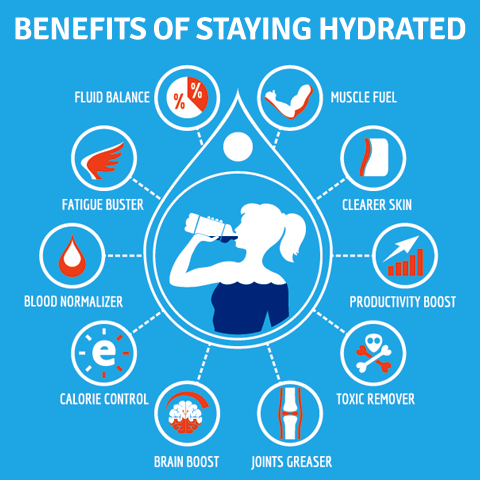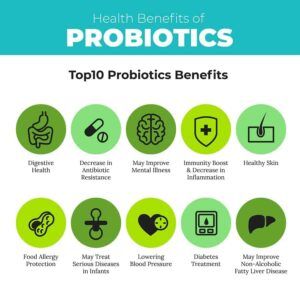Plant-Based Diets: Benefits and Nutritional Tips
A plant-based diet is one that emphasizes whole, natural foods derived from plants, such as fruits, vegetables, grains, legumes, nuts, and seeds. This type of diet eliminates or minimizes the consumption of animal products, including meat, poultry, dairy, and eggs. Plant-based diets have gained popularity in recent years due to their numerous health benefits and positive environmental impact.
Benefits of a Plant-Based Diet
There are multiple benefits associated with adopting a plant-based diet:
Improved cardiovascular health: Plant-based diets are low in saturated fat and cholesterol, which are known to contribute to heart disease. By consuming more fruits, vegetables, and whole grains, individuals can reduce their risk of cardiovascular issues such as high blood pressure and cholesterol levels.
Weight management: Plant-based diets tend to be lower in calories and higher in fiber, promoting weight loss and maintenance. The abundance of fiber in plant foods helps you feel satiated for longer, reducing the urge to overeat.
Lower risk of chronic diseases: Studies have shown that plant-based diets can reduce the risk of developing chronic diseases, including type 2 diabetes, certain types of cancer, and obesity.
Improved digestion: Plant-based diets are rich in fiber, which aids in digestion and prevents constipation. Additionally, the high water content in fruits and vegetables helps maintain a healthy gut.
Environmental sustainability: By reducing the consumption of animal products, plant-based diets contribute to environmental sustainability. The production of meat and animal products is associated with greenhouse gas emissions, deforestation, and water pollution.
Nutritional Tips for a Plant-Based Diet
While a plant-based diet is generally healthy, it is essential to ensure you are getting all the necessary nutrients. Here are some tips to help you maintain a balanced and nutritious plant-based diet:
1. Include a Variety of Foods
Ensure you incorporate a diverse range of fruits, vegetables, legumes, whole grains, nuts, and seeds in your diet. This will provide you with a wide array of vitamins, minerals, and antioxidants to support overall health and wellbeing.
2. Focus on Protein Sources
While animal products are a concentrated source of protein, plant-based diets can still provide adequate protein through sources such as legumes (beans, lentils, chickpeas), tofu, tempeh, seitan, quinoa, and hemp seeds. Combining different plant protein sources throughout the day ensures you consume all essential amino acids.
3. Pay Attention to Iron Intake
Iron is important for carrying oxygen in the blood and preventing fatigue. Plant-based sources of iron include dark leafy greens (spinach, kale), legumes, tofu, nuts, and seeds. Consuming vitamin C-rich foods alongside these sources, such as citrus fruits or bell peppers, can enhance iron absorption.
4. Get Sufficient Vitamin B12
Vitamin B12 is primarily found in animal products, so individuals on a plant-based diet should consider supplementation or consuming B12-fortified foods like plant-based milk or breakfast cereals.
5. Include Healthy Fats
Healthy fats are essential for various bodily functions. Incorporate sources such as avocados, olive oil, nuts, and seeds into your meals to ensure you’re obtaining adequate amounts of omega-3 fatty acids and other beneficial fats.
6. Stay Hydrated
Water plays a crucial role in overall health and digestion. Ensure you drink enough water throughout the day, and incorporate hydrating foods like fruits and vegetables into your meals.
7. Pay Attention to Vitamin D and Calcium
Vitamin D aids in calcium absorption, and both are vital for bone health. While dairy products are a common source of calcium, plant-based alternatives like fortified plant-based milk, tofu, tempeh, and leafy greens can provide these nutrients.
Conclusion
Adopting a plant-based diet can offer numerous health benefits and help preserve the environment. By incorporating a variety of plant foods and ensuring adequate nutrient intake, individuals can thrive on a plant-based diet while promoting their own health and that of the planet.


